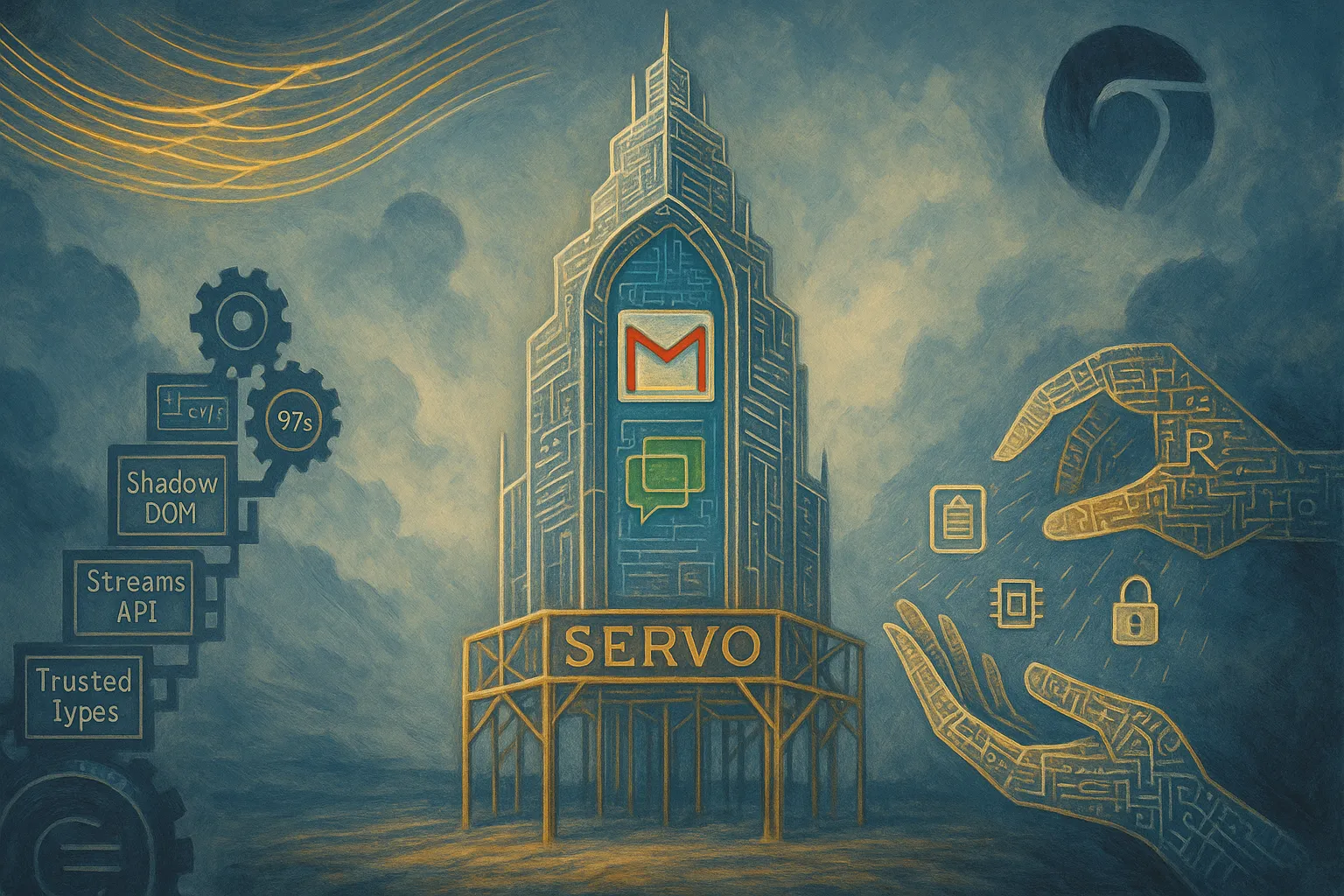The open-source Servo browser engine now renders Gmail and Google Chat in its test browser. This marks a significant technical step forward, though users still cannot access accounts with two-factor authentication.
These improvements stem from extensive work on core web technologies. The engine processes CSS nesting through the & selector and handles element transformations with new CSS properties. Web developers can now use rotate, scale, and translate commands to position page elements more precisely.
Test results show dramatic improvements in web standards support. The engine's Shadow DOM implementation now passes 97% of standardized tests, up from 8% two months ago. Both the Trusted Types API and Content Security Policy components advanced from less than 1% to over 55% of test completions. The Streams API succeeded in 69% of its test suite.
New APIs Enable Modern Web Features
Modern web applications need precise control over system resources. Servo meets these needs with new clipboard functions, enhanced canvas controls, and improved stream handling. The engine manages text data through the clipboard, controls canvas line properties, and processes byte streams more efficiently.
Performance Gains Through Architecture Updates
Engineers reshaped Servo's architecture to boost performance. They split the script component into smaller parts, cutting build times by 60%. This completed a task first proposed 11 years ago. A new incremental layout system speeds up common page measurements like width and height calculations.
The team improved memory use by removing double buffering from background rendering and reducing canvas delays. They fixed crashes related to touch input, service workers, and data streams. These changes make the engine more stable for daily use.
The project maintains strict quality standards. After community discussion, Servo's team kept their ban on AI-generated contributions. This policy covers code, documentation, and bug reports. It aims to ensure reliable code and avoid legal issues with AI-generated content.
Growing Support and Resources
Community support for Servo continues to grow. Monthly donations reached $4,664, rising 6.8% since February. These funds pay for testing infrastructure and support two programming interns. Twenty-four GitHub users now sponsor the project through thanks.dev.
Recent updates improved how Servo handles flexible layouts. The engine properly sizes elements in both directions and manages content that doesn't replace existing elements. It now fully supports size keywords in flexible layouts.
The team strengthened security by validating special attributes in content policies and improving how the engine handles form data. They fixed how the engine processes text markers at the start of files. Touch input works more reliably, and the engine tracks element size changes more accurately.
Market Impact and Future Direction
Servo represents an alternative to Google's Blink engine, which powers most modern browsers. Its focus on parallel processing and performance shows how browser engines can evolve while staying open source. The project proves that community-driven development can create sophisticated web technology.
Why this matters:
- The browser engine market needs competition to prevent a single company from controlling web standards.
- Servo shows how open-source projects can build modern browser technology through careful engineering and community support.
Read on, my dear:
servo.org blog: Two months in Servo: CSS nesting, Shadow DOM, Clipboard API, and more!










